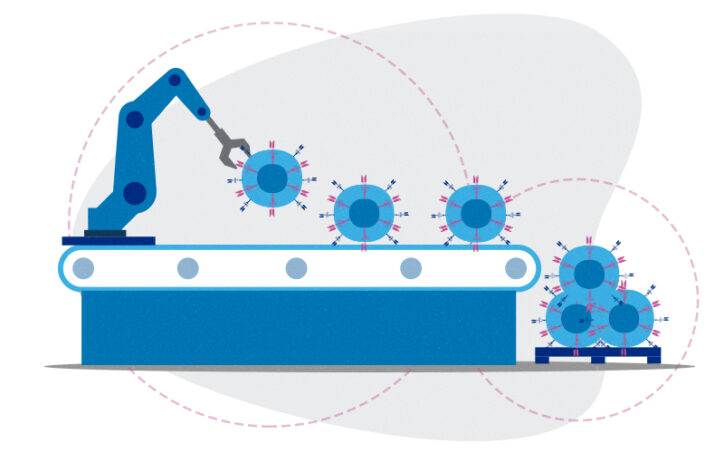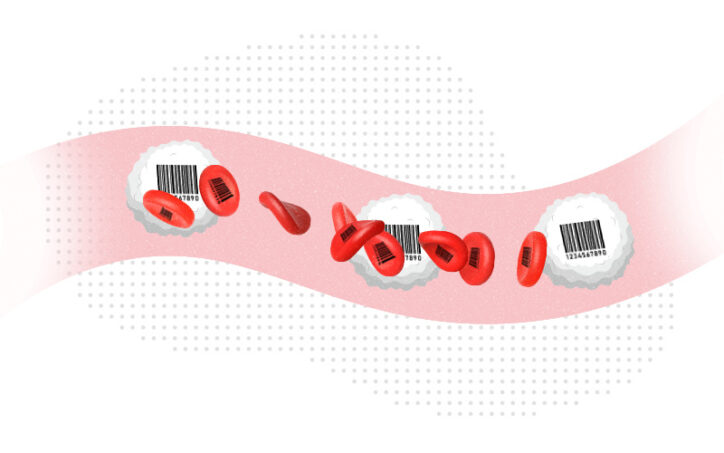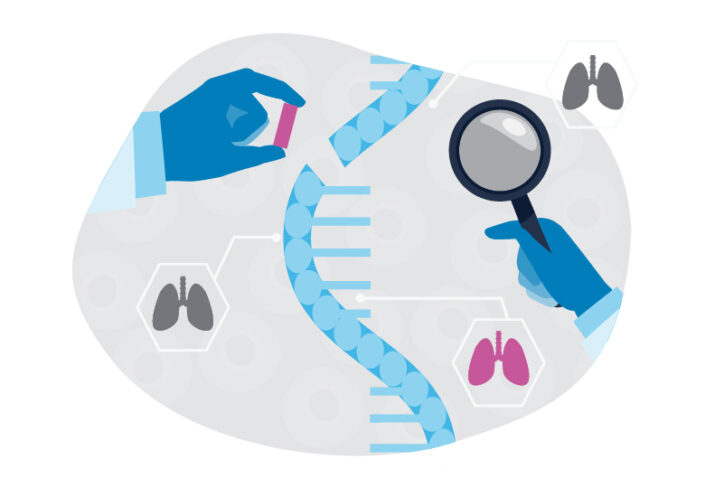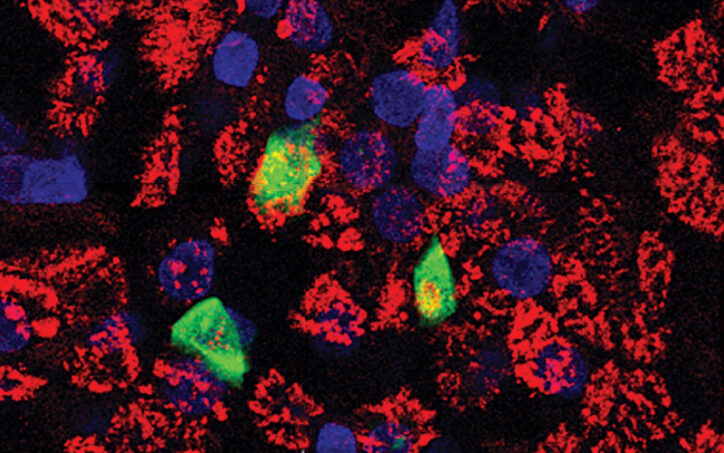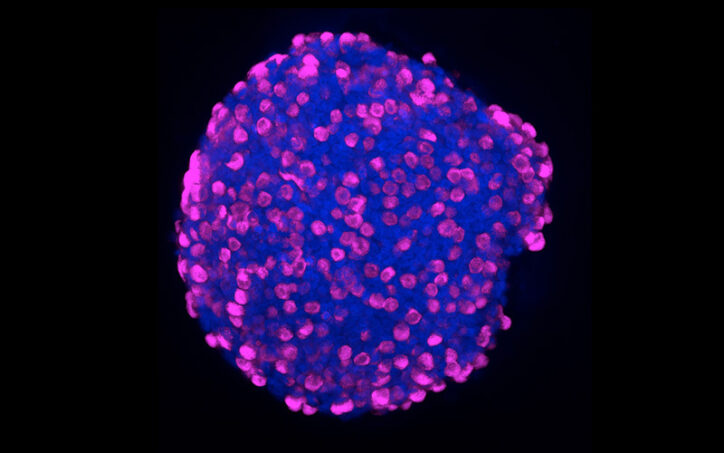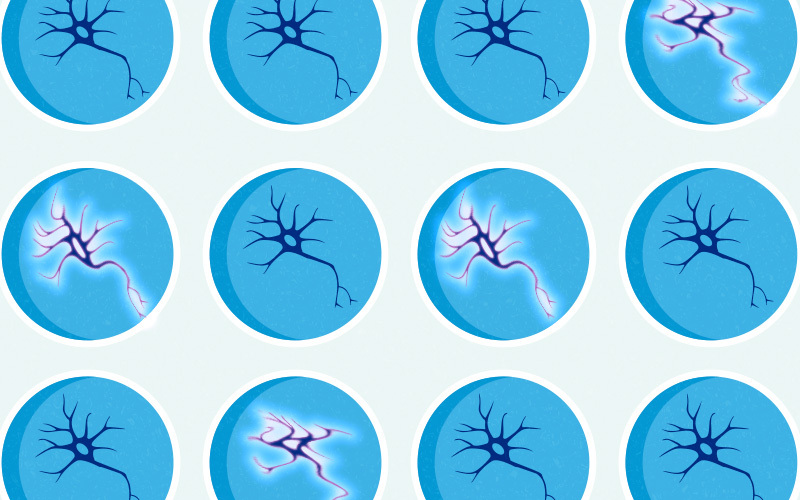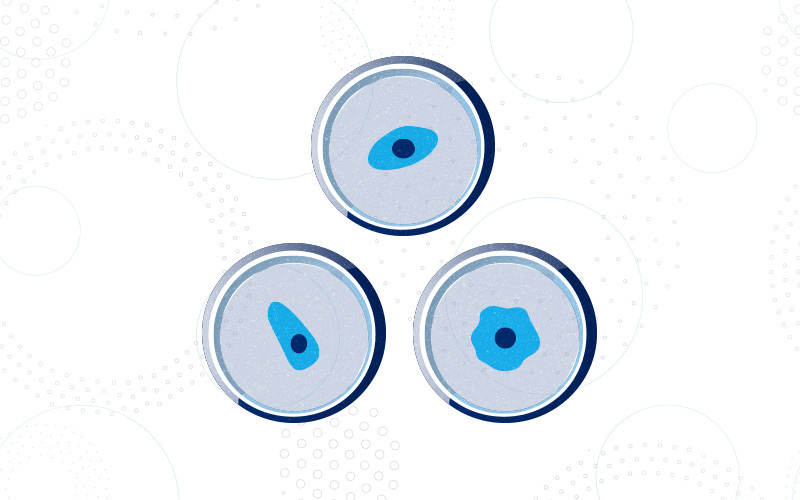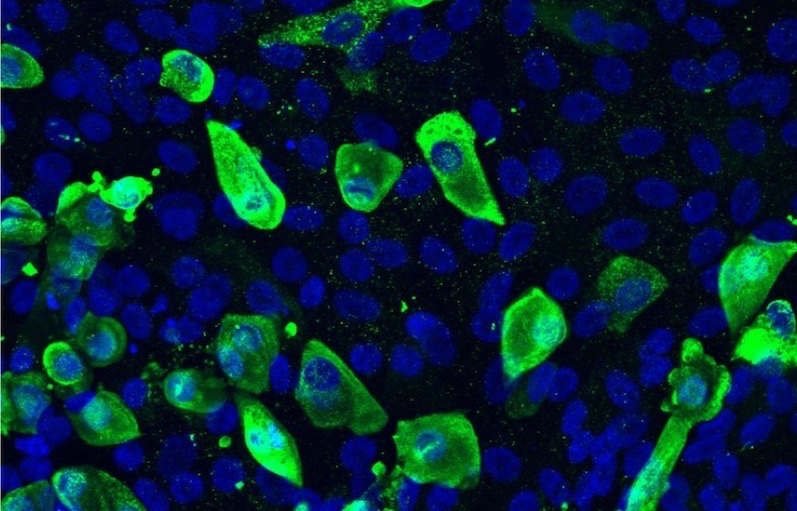Archive for stem cells
Making ready-made CAR T cells for cancer immunotherapy
In CAR T-cell immunotherapy, T cells from a patient’s own blood are engineered to carry so-called chimeric antigen receptors (CAR) that enable the T cells to attack and kill tumor cells. While CAR-T therapy is a powerful approach for certain leukemias and lymphomas, it’s not available for many patients who need it. It can be ... Read More about Making ready-made CAR T cells for cancer immunotherapy
Tagged: cancer, car t-cell therapy, immunotherapy, leukemia, lymphoma, stem cells
New work transforms our knowledge of how blood is formed
The origins of our blood may not be quite what we thought. In groundbreaking research, scientists in the Stem Cell Program at Boston Children’s Hospital used cellular “barcoding” techniques in mice to track the development of blood in real time — and found that blood cells originate not from one type of mother cell, but ... Read More about New work transforms our knowledge of how blood is formed
Tagged: blood, blood disorder, cancer, hematology, stem cell transplant, stem cells
Exploiting a vulnerability in an aggressive leukemia
Survival has improved greatly in children with acute lymphocytic leukemia (ALL). But a certain form of ALL that occurs mostly in babies is still very lethal, with a survival rate below 50 percent: B-cell acute lymphoblastic leukemia with rearrangements of the mixed lineage leukemia gene, or MLL B-ALL. “Something about the biology of this type ... Read More about Exploiting a vulnerability in an aggressive leukemia
Tagged: acute lymphoblastic leukemia, cancer, leukemia, oncology, stem cells
Cell therapy for lung disease? Proof-of-concept study shows promise
Many serious pulmonary diseases, including genetic lung diseases, lack an effective treatment other than the most extreme: lung transplant. A team at Boston Children’s Hospital envisions a much better option: cell therapy, using lung stem cells created from patients’ own cells to repair or replace damaged lung tissue. For patients with genetic lung diseases, the ... Read More about Cell therapy for lung disease? Proof-of-concept study shows promise
Tagged: cystic fibrosis, organoids, pulmonology, stem cells
A respiratory model of COVID-19, made from patients’ own cells
What happens in our respiratory tract once COVID-19 invades? A three-dimensional airway model, made from patient-derived stem cells, could provide answers about the initial stages of infection. The model not only replicates the infection process, but can be used to test potential antiviral drugs. Ruby Wang, MD, attending physician in Boston Children’s Division of Pulmonary ... Read More about A respiratory model of COVID-19, made from patients’ own cells
Tagged: coronavirus, infectious diseases, organoids, pulmonology, stem cells
Can we harness intestinal cells to treat endocrine disorders?
Enteroendocrine cells punch above their weight. Comprising just about 1 percent of intestinal cells, they produce, as a group, around 15 different hormones. These not only regulate intestinal function and digestion, but also influence metabolic functions like insulin secretion and appetite regulation. A new technology platform developed at Boston Children’s could set the stage for ... Read More about Can we harness intestinal cells to treat endocrine disorders?
Tagged: diabetes, endocrinology, obesity, organoids, stem cells
Motor neurons made from patients’ cells reveal possible ALS drugs and targets
Amyotrophic lateral sclerosis (ALS) is a severe, fatal neurodegenerative disorder causing loss of motor neurons and voluntary muscle action. While mouse studies have identified potential treatments, these drugs have typically done very poorly in human trials. “One of the most difficult challenges in drug discovery is identifying a target that has a key role in ... Read More about Motor neurons made from patients’ cells reveal possible ALS drugs and targets
Tagged: drug development, epilepsy, neurology, neuroscience, stem cells
Recommendations for reproducibility in stem cell research
The ability to program induced pluripotent stem cells (iPSCs) and drive their differentiation into a variety of neural cells is essential for studying neurological disorders, including intellectual and developmental disabilities (IDDs). But issues regarding variability and reproducibility from lab to lab make translating discoveries difficult, in turn slowing the progress of IDD research. To address ... Read More about Recommendations for reproducibility in stem cell research
Tagged: intellectual disability, neurology, stem cells
Avoiding a lifetime of injections: Can gene editing cure severe congenital neutropenia?
Fionn Mulrooney, a cheerful 11-month-old, in Plymouth, Massachusetts, has no idea he has a life-threatening genetic disease. Nor does he seem fazed by the daily subcutaneous injections his parents have learned how to give him. And little does he know that cells from his bone marrow are helping scientists develop an innovative gene-editing approach that ... Read More about Avoiding a lifetime of injections: Can gene editing cure severe congenital neutropenia?
Tagged: blood disorder, gene editing, research, stem cells
How do patients with cystic fibrosis respond to COVID-19? An ‘airway in a dish’ may give answers
So far, based on clinical data, patients with cystic fibrosis (CF) don’t appear to be especially susceptible to COVID-19. And when they do get infected, they don’t seem to get sicker. But Ruobing (Ruby) Wang, MD, who cares for patients with CF in the Division of Pulmonary Medicine at Boston Children’s Hospital, thinks there is ... Read More about How do patients with cystic fibrosis respond to COVID-19? An ‘airway in a dish’ may give answers
Tagged: asthma, coronavirus, cystic fibrosis, organoids, pulmonology, stem cells, tissue engineering


